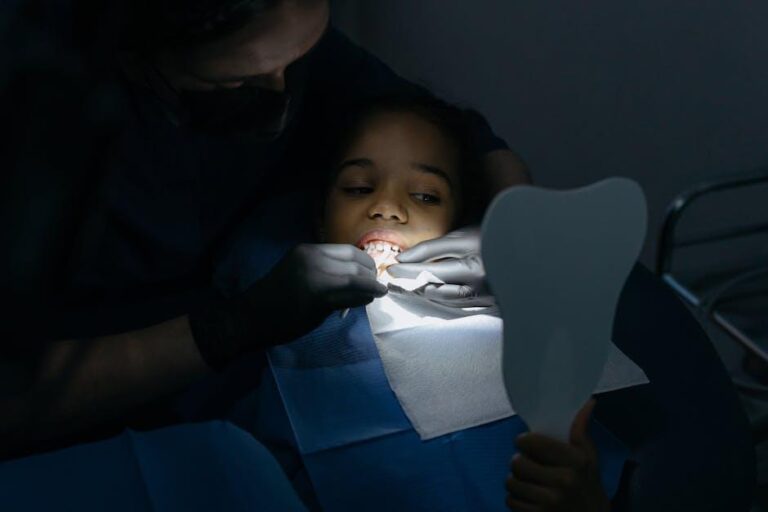
Dentist Shares 10 Oral and Daily Habits He Would Never Practise: ‘Mouth Breathing or Snoring is Always a Red Flag’
Maintaining excellent oral health is a combination of consistent dental care and healthy daily habits. According to experts, some habits can quietly sabotage your dental and overall health even if they feel harmless. Recently, a renowned dentist shared 10 oral and daily habits he would never practise, emphasizing particularly on the dangers of mouth breathing and snoring.
This comprehensive guide covers all those important habits and explains why some common actions could be detrimental. Whether you want fresher breath, healthier gums, or a better night’s sleep, this article is your go-to source for optimizing your oral routine.
Why Oral Habits Matter: Beyond Just Your Teeth
Oral health isn’t limited to your teeth and gums — it influences overall wellness, affects sleep quality, and can signal systemic conditions. Habits as simple as how you breathe or when you brush your teeth can either protect or damage your smile.
Understanding the link between oral habits and health empowers you to make better choices. Here are the 10 daily practices a dentist warns against, with valuable insights and practical alternatives.
Top 10 Oral and Daily Habits to Avoid According to a Dentist
| Habit | Why It’s a Red Flag or Harmful | Recommended Alternative |
|---|---|---|
| Mouth Breathing | Leads to dry mouth, increased risk of decay, gum disease, and disturbed sleep | Breathe through your nose; address nasal congestion with a healthcare professional |
| Snoring Regularly | Can indicate sleep apnea, affecting oxygen supply and oral tissues | Seek medical evaluation and use prescribed sleep apnea treatments |
| Brushing Immediately After Meals | Can erode enamel if acidic foods/drinks were consumed | Wait 30-60 minutes before brushing |
| Using Hard-Bristled Toothbrushes | Damages gums and tooth enamel causing sensitivity | Use soft-bristled toothbrush for gentle cleaning |
| Excessive Teeth Whitening | Leads to enamel weakening and tooth sensitivity | Limit whitening; consult a dentist for safe treatments |
| Ignoring Tongue Cleaning | Allows bacteria accumulation contributing to bad breath and plaque | Incorporate tongue scraping or brushing into routine |
| Excessive Snacking on Sugary Foods | Feeds harmful bacteria causing tooth decay | Limit sugary snacks; prioritize balanced meals |
| Using Teeth as Tools | Can cause chips, cracks, or joint pain | Use scissors or proper tools instead |
| Neglecting Regular Dental Checkups | Delays detection of decay, gum disease or oral cancers | Visit your dentist at least twice a year |
| Sleeping Without Addressing Night-time Dry Mouth | Increases risk of cavities and gum disease | Use humidifiers and consult for possible causes |
Why Mouth Breathing and Snoring Are Major Red Flags
A dentist’s strong emphasis on mouth breathing and snoring is not without reason. Mouth breathing, especially during sleep, causes dry mouth, which diminishes saliva’s protective effects against bacteria and acid build-up. This condition often leads to increased decay, gum inflammation, and chronic bad breath.
Snoring, while commonly dismissed as an annoyance, has serious health implications. It may reflect underlying obstructive sleep apnea which disrupts oxygen flow during sleep, impacting cardiovascular health and oral tissues. Persistent snoring can also exacerbate mouth breathing, compounding oral problems.
If you or a loved one suffers from chronic mouth breathing or regular loud snoring, a visit to a healthcare professional including a sleep specialist or dentist is critical to rule out or treat these conditions early.
Benefits of Avoiding These Harmful Oral Habits
- Improved dental health: Reduced risk of cavities, gum disease, and enamel erosion.
- Fresher breath: Effective tongue cleaning and avoiding dry mouth combat bad breath.
- Better sleep quality: Managing snoring and breathing habits enhances restfulness and daytime vitality.
- Enhanced overall health: Early detection of oral health issues lowers risk of systemic diseases.
Practical Tips to Break Bad Oral Habits
- Practice nasal breathing: Try breathing exercises and nasal strips to train your nose breathing pattern.
- Wait before brushing: After acidic food intake, rinse mouth with water and delay brushing.
- Switch to a soft brush: Choose quality soft toothbrushes and replace them every 3 months.
- Include tongue cleaning daily: Use a tongue scraper or brush your tongue gently after brushing teeth.
- Control sugar intake: Opt for fruit or nuts between meals and reduce sugary beverages.
- Schedule regular dental visits: Keep routine checkups even if no pain or discomfort is present.
- Create a humid sleep environment: Use humidifiers to prevent night-time dry mouth.
Case Study: From Mouth Breathing to Healthy Smiles
One patient, a 35-year-old man, visited the dentist complaining of frequent dry mouth, bad breath, and morning headaches. On evaluation, the dentist observed heavy mouth breathing and early gum recession. After a referral to an ENT specialist, the patient was treated for chronic nasal congestion. The patient adopted nasal breathing exercises and improved oral hygiene habits. Within 6 months, his symptoms improved dramatically — his oral health stabilized, and breathing/snoring issues significantly reduced.
Conclusion
Oral health is much more than just brushing and flossing. Habits such as mouth breathing or snoring can serve as important red flags indicating that something deeper may be affecting your wellbeing. By recognizing and avoiding harmful oral and daily habits, you not only protect your teeth and gums but also improve your overall quality of life.
Adopting a mindful approach to your dental care routine, seeking timely professional guidance, and making simple lifestyle changes can go a long way in safeguarding your smile and health. Remember, as the dentist emphasizes, certain habits are never worth practising, especially when better alternatives exist.


